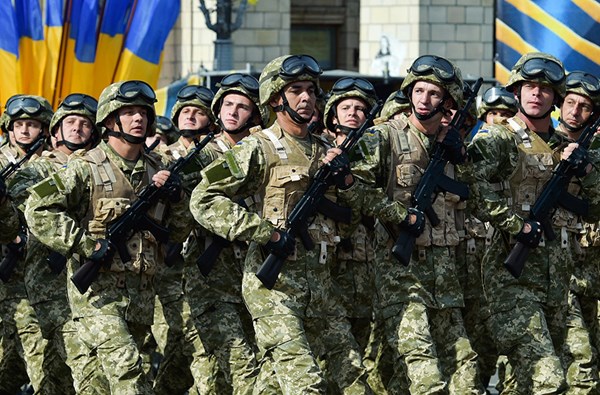Ukraine's mobilization dilemma: balancing recruitment needs and strategic military priorities
Ukraine's armed forces are considering a massive strategical move amid Russian pressure by recruiting between 160,000 to 500,000 soldiers, unveiling contrasting estimates of military needs while keeping certain figures a military secret. The recent calls for ramping up military technology advantages have notably dwindled, despite the decisive edge modern aviation, missiles, and rocket artillery could provide against the Russians. The focus has shifted towards resolving territorial issues with new recruits.
Ukraine extended its general mobilization until February 7, 2025. Military leadership plans to conscript 160,000 troops shortly to fill units up to 85% capacity. This comes after Secretary of the National Security and Defense Council, Oleksandr Lytvynenko, announced that 1.05 million citizens have been enlisted since the full-scale war began, stressing the need to replenish losses.
Varied demands for troop mobilization have surfaced. President Volodymyr Zelensky, back in December 2023, noted that the Ukrainian General Staff and former commander Valerii Zaluzhnyi emphasized the necessity of conscripting 450,000 to 500,000 soldiers, a move potentially costing the state 500 billion Hryvnias. However, Zaluzhnyi later claimed that revealing such numbers breaches military secrecy. His successor, Oleksandr Syrskyi, promised a significant decrease in conscript numbers.
Recently, lawyer and Russia-Ukraine war veteran Masi Nayyem warned that failing to mobilize 160,000 troops now could lead to the country's surrender. The urgency echoed by MP and secretary of Ukraine's national security committee, Roman Kostenko, who agrees with the need to recruit up to 500,000 people. However, mobilization has "stabilized" from May to September 2024, yet a recent downturn since October raises concerns about potentially grave consequences.
Contrarily, Holos Party MP Solomiya Bobrovska refutes Kostenko's claim, stating that the figure of 500,000 is not part of the mobilization plans for 2024 or beyond. She believes such public declarations are irresponsible, underscoring that the mobilization figure for this year falls drastically short of 500,000.
Bobrovska notes Ukraine's inability to compete with Russia's military size due to limited human and economic resources. Instead, asymmetric warfare tactics, like the Black Sea operations that forced the Russian Black Sea Fleet out of Ukrainian waters, should be pursued.
Can the enlistment of 160,000 recruits "reclaim the 1991 borders"? Publicizing Ukraine's manpower needs aids Russia's military calculations, enabling assessments of Ukraine's combat potential. In emergencies, only Ukraine's top commanding officers should report mobilization numbers, and parliament members like Alexander Fedienko stress this as a military professional prerogative.
Fedienko remains skeptical that 160,000 or even 500,000 conscripts will settle the territorial dispute by liberating all Ukrainian territories from 1991. A portion unfit for combat, injury-ridden soldiers, and a significant risk of fatalities at the front weakens this argument. Even if more troops buy Ukraine time, the absence of modern military technology may ultimately lead to strategic defeat, as politicians argue for an armament-based strategy over a personnel-based one.
With unclear demographics and post-war migration, Ukraine's overall military recruitment capacity remains uncertain. The last census, taken in 2001, counted 22.4 million men, but the numbers have greatly fallen over 23 years. Up to five million could theoretically be conscripted, considering that Russia’s potential is rated at up to 15 million, notes military expert Dmytro Snehirev.
New troop formations amid mobilization might strain Ukraine's economy, sparing resources for one soldier may require reserving six civilians in support roles. Business sectors struggle under the recruitment pressure, prompting MPs to urge army reviews for "statistic" military professionals.
Mobilizing even territorial army centers' staff could reinforce army units, Snehirev suggests, questioning why internal reserves remain unused for defense when societal elements face mounting pressures and constraints. Such measures, he argues, fuel tensions within, particularly when statutory exemptions shelter over a million eligible men, sometimes corruptly.
In recent developments, MP Maryana Bezuhla endorsed women's mobilization, citing non-discriminatory constitutional defense obligations. Volunteer project leader Maria Berlinska voiced support for women's conscription, deeming it harsh yet essential for Ukraine's sustainability absent military necessity yielding to surrender.
